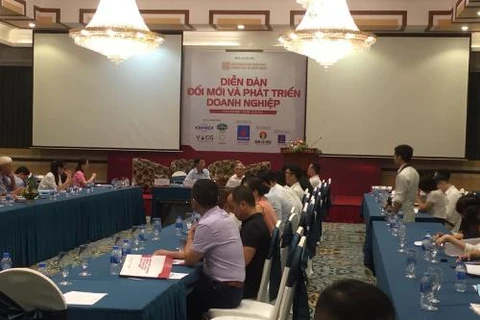 Ride-hailing unicorns like Grab and Gojek have received a huge amount of investment in the past four years. (Photo: Reuters)
Ride-hailing unicorns like Grab and Gojek have received a huge amount of investment in the past four years. (Photo: Reuters) Hanoi (VNA) – Southeast Asia’s internet economy is forecast to reach 300 billion USD by 2025 as millions of people in the region take up online shopping and embrace ride-share food delivery, an industry report said on October 3.
In a bid to hit that target, the online industry is expected to grow by 200 percent over the next five years from an estimated 100 billion USD this year, according to the report by Google, Singapore state investor Temasek Holdings and global business consultants Bain & Company.
The annual report lifted its 2025 outlook from 240 billion USD previously after a tripling in growth in the past four years alone as young internet users turn to their phones to do everything from banking and playing games to purchasing plane tickets.
It said the pace of growth has exceeded all expectations, and internet access is now affordable for large segments of the population and consumer trust in digital services has improved significantly.
More than 37 billion USD has been invested in Southeast Asian online companies over the past four years with the majority going into e-commerce firms like fashion retailer Zilingo and ride-hailing unicorns such as Grab and Gojek, the report found.
Ride-hailing alone was worth 13 billion USD, quadrupling in value since 2015, and was expected to reach 40 billion USD by 2025, when food delivery will be worth as much as transport.
Southeast Asia’s average growth rate of 5 percent per year since 2014 puts it far ahead of the global average and makes it an attractive investment destination as the Chinese economy is hobbled by its trade tensions with the US.
Besides, internet users in countries covered in the report (Indonesia, Thailand, Vietnam, Singapore, Malaysia and the Philippines) surged from 260 million four years ago to 360 million this year. Vietnam has 61 million Internet users, who spend an average of three hours and 12 minutes per day using the Internet on mobile devices.
However, there are some significant headwinds to the rapid regional growth, most notably regulatory risks and a shortage of skilled labour.
Malaysia’s competition regulator on October 3 proposed a fine of more than 86 million ringgit (20.53 million USD) on Grab for violating the country’s competition law by preventing its drivers from promoting rival services. Grab has a month to appeal before a final decision.
Meanwhile, Singapore this week implemented a law requiring social media sites like Facebook and Twitter to carry corrections or remove content the government considers being false. Rights groups have expressed concern the “fake news” law will curb internet freedom.
The industry is also still struggling to fill labour gaps, with demand for skilled tech workers far outstripping supply. Even Singapore, which has tight restrictions on foreign labor, has said it will pursue more talent from overseas as it ramps up efforts to grow the sector./.
VNA























